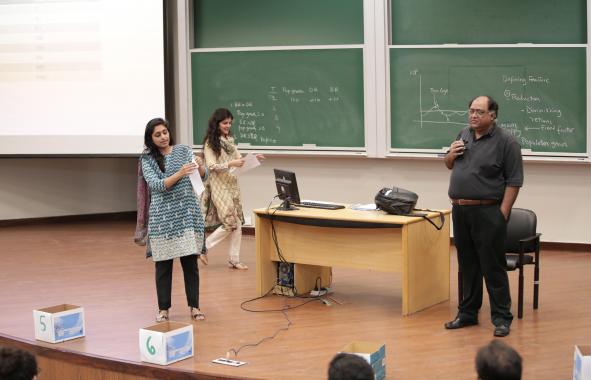
A group of eminent economists from universities across the globe have collaborated to innovate courseware to address concerns with the conventional way of teaching economics. The CORE project has developed a free open access courseware available at www.core-econ.org with a vast array of resources for students and teachers. It has introduced a pedagogical innovation by introducing the use of interactive diagrams, activity-based learning and the use of short video clips from top economists in the field to help students get a flavour of what actual economics is about. The curriculum has also introduced a content innovation which has revolved around making economics more relevant and accessible, formulating interesting questions which are based on evidence and current debates. The material has been acknowledged as a substantive curricular innovation in the teaching of economics.
LUMS is a collaborating institution of CORE. It has been a global forerunner in adopting the curriculum as part of its undergraduate programme. Faisal Bari, Ali Cheema and Rashid Memon at the Economics department are engaged with the teaching of CORE at LUMS. As economists, they also serve as peer reviewers of the CORE curriculum and many of their suggestions have been incorporated in the courseware.
CORE economics is a question-motivated way to learn the tools of economics. It focuses on building a community of learners and teachers collaborating to make economics relevant to today’s world. CORE is based on recent developments in economics and other social sciences. Since it is empirically grounded and well-illustrated, students learn from models motivated by facts from history, experiments and data.
“We were among the first set of institutions to adopt this course in Fall 2015 and feedback from our students and faculty has shaped its final form,” explains Dr. Cheema. He echoes CORE in saying that we hope to enable students to rigorously analyse and answer the bigger questions facing their generation.
In December 2015, CORE and the International Economic Association (IEA) conducted a workshop at LUMS to introduce CORE to universities across Pakistan. CORE was formally introduced at LUMS in Fall 2015.
“It has been a pleasure and honour to have been associated with the CORE effort,” shares Dr. Bari. “Introducing students to economics using this new material has been the real reward. Contextualizing and empiricizing economics, introducing interactions (game theory) and emphasizing the role of institutions, right from the beginning gives students a much more effective, deeper and rigorous exposure to the bigger ideas that economists and social scientists grapple with,” explains Dr. Bari.
Since Fall 2015, the CORE community at LUMS is growing tremendously, and the Economics Department at LUMS hopes to train its students to be well-rounded economists for the future.







